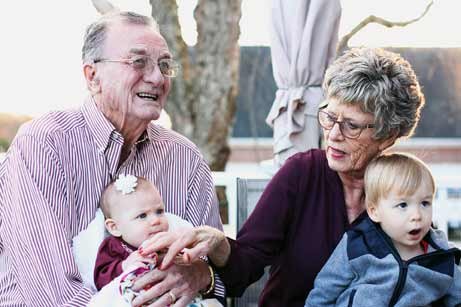 Living independently as long as possible: why it matters.
Living independently as long as possible: why it matters.
The first quarter of our lives are mainly focused on teaching us how to make our own way in the world, independently. From basic hygiene to working jobs, raising families, handling finances and making difficult decisions; independence is a right of passage into adulthood.
Which is why the loss of independence can be a devastating blow to so many seniors. Difficulties with mobility, isolation, loneliness, and chronic medical issues are some of the contributors to a loss of independence in aging adults.
While we cannot avoid some barriers to independence, we can take the time to understand the importance of independence in seniors and look for ways to increase opportunities for independent living.
Feeling in Control
Independence is sometimes the only thing seniors may feel they can control as they age. Making choices about your daily life has a big impact on how you feel about yourself. When you are no longer managing the decisions in your life, you might feel like less of an individual.
Depression, anger, or destructive behavior, can often manifest when independence is threatened.
Even when cognitive function is impaired it is beneficial to keep make choices in daily living, like the clothes you wear and the food you eat.
Purpose and Personal Achievement
Loss of independence can be isolating. Seniors who are isolated often develop feelings of hopelessness and depression, and the negative effects on their mental health can lower their quality of life.
One of the main benefits of promoting independence in elderly people in care settings is to create a sense of achievement and pride in their accomplishments. They have opportunities for achievement, can contribute to the lives of their family, friends, and neighbors, and enjoy activities that they’ve always done.
Home health care companies help seniors maintain independence for as long as possible. Caregivers assist clients in activities of daily living, such as grocery shopping, light cleaning, cooking and other activities that enable seniors to live at home independently.
Even if a senior is limited by mobility, they can still gain a sense of purpose through involvement in their own personal care.
Aids with memory skills
Memory loss gradually happens as we age, but independence and activity boost memory skills. This means involving seniors in daily activities and duties, dependent on the senior’s capabilities. Daily routines help promote both memory and independence.
Above and beyond performing household tasks together, you should engage in other activities with senior loved ones, such as playing games, going for walks, eating meals together or simply engaging seniors in lively conversations.
Maintain balance and muscle strength
Falls are the number one cause of senior injuries. Retaining balance and muscle acuity are critical for one’s ability to stay independent. If balance and strength are not routinely worked on, the likelihood of injury greatly increases for seniors. Motivating older adults to stay active is also a great way to improve mental health as well as physical well-being.
There are also mobility devices that provide support for seniors who need help walking, such as walkers and railings.

 Living independently as long as possible: why it matters.
Living independently as long as possible: why it matters.




